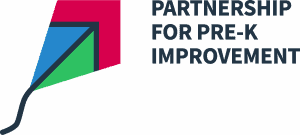In this blog post, Start Early vice president of translational research, Debra Pacchiano, highlights her recently published research on the importance of providing strong and nurturing leadership to early childhood teachers in order to improve child outcomes.
Recent early childhood research has confirmed that— if we want teachers to nourish children, we must first nourish teachers.
When a child begins their life-long learning journey, parents and families expect they will be cared for and taught in safe, positive, and effective environments. Unfortunately, that’s not always the case. The quality of early learning programs varies tremendously with the highest quality programs disproportionately serving children from the most advantaged homes. By contrast, lower quality and less effective programs disproportionately serve children from under-resourced communities—the very children who stand to benefit most from top-notch early childhood education (Valentino 2017).
Teaching is complex work. In early childhood, teachers work with young children, often from vulnerable populations, who are in critical developmental stages. Variations in children’s early learning outcomes are often attributed to under-engaged teachers and low-quality teaching. Yet, all too often teachers face their complex work without needed sustained supports from leadership and their peers.
Start Early has worked at the intersection of research, practice, and policy for more than three decades, spearheading innovation and quality improvement in early childhood education. We activate creativity to design solutions rooted in research and applied science to address chronic issues in the field.
As part of this work, we spent time observing early childhood education programs, some that were high functioning and some that were not. We talked with leaders, teachers, staff, and families about what supports and what hinders their effectiveness advancing young children’s learning. Differences in their organizational mindsets and practices were unmistakable. Simply put, high-performing programs had organizational environments far more supportive of teaching, learning, and family engagement than lower-performing programs. In response, we built The Essential 0-5 Survey (formerly known as the Early Education Essentials), an organizationwide measurement system that elevates the voices of teachers, staff, and families in early childhood settings and empowers collective action towards improvement.
A recent Education Week study found substantial gaps between the perceived and real impacts of leadership on teachers. By highlighting teacher and staff perspectives on organizational strengths and weaknesses in key areas of climate and culture, The Essential 0-5 Survey can help close those gaps between the impacts leaders believe they have, and the impacts teachers and staff actually feel.
In a Young Children journal article, published by myself and other Start Early researchers, we highlight the positive impacts The Early Education Essentials can have on early childhood environments and teachers’ experiences. The article features the clear differences that were identified, through The Early Education Essentials, between organizations strong in the areas of effective instructional leaders, collaborative teachers, involved families, supportive environment, and ambitious instruction, and those that were weak in those areas. Listen to what one teacher in a strongly organized program had to say about her organizational culture:
I feel like it’s empowering [here]—it’s not just from the top down. It’s right here, and we believe in this stuff and I have something to share and it’s valued by our administrator. Then your co-teachers and your colleagues also buy in too, and you have that energy and you have that love. Then you have an administrator that pushes you in that way and supports you and guides you and nudges you a bit farther. I think it’s kind of what we try to do with our students too, now, even when they’re only 3. I think [the principal/ director] leads by example, for sure.
Strong organizational environments in early childhood education empower leaders, teachers and families to aspire to and realize higher-quality practices and better outcomes for young children.

 The Partnership for Pre-K Improvement (PPI) was launched in 2017 to learn together with states about how to build quality, equitable pre-K systems that ensure children succeed in school and in life. The initiative’s unique approach fosters partnerships across program, advocacy, and research organizations in support of a common vision for pre-K systems improvement.
The Partnership for Pre-K Improvement (PPI) was launched in 2017 to learn together with states about how to build quality, equitable pre-K systems that ensure children succeed in school and in life. The initiative’s unique approach fosters partnerships across program, advocacy, and research organizations in support of a common vision for pre-K systems improvement.
